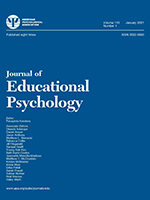Forfattere
Janne von Koss Torkildsen, Siri Steffensen Bratlie, Jarl Kleppe Kristensen, Jan-Eric Gustafsson, Solveig-Alma Halaas Lyster, Catherine Snow, Charles Hulme, Riikka-Maija Mononen, Kari-Anne B. Næss, Anita López-Pedersen, Ona Bø Wie & Bente Hagtvet
Sammendrag
Morphemes, the smallest meaning-bearing units of language, recur in many words. Therefore, morphological knowledge can facilitate the comprehension of novel words. This study tested the effectiveness of a morphological training program on children’s learning and retention of exposed words and morphologically related unexposed words compared with an active control condition. Norwegian second graders (N = 717) unselected for ability were individually randomized to either a morphological (n = 366) or a mathematical training program (n = 351). Both programs lasted for 8 weeks and were delivered as self-contained apps in a classroom setting. The morphological training built on the principle that frequency of target elements together with variation of nontarget elements can support implicit learning. Treatment-blind examiners assessed participants’ meaning-based knowledge (word comprehension and definitions) and code-based knowledge (word reading fluency and spelling) at pretraining, immediately post training, and at follow-up 6 months later. An intention-to-treat analysis showed lasting effects of the morphological training on meaning-based knowledge of exposed words (posttest: d = .37; follow-up: d = .31) and unexposed words containing trained morphemes (posttest: d = .27; follow-up: d = .27) and code-based knowledge of exposed words (posttest: d = .22; follow-up: d = .13). For code-based knowledge of unexposed words, there were significant training effects at the posttest (d = .12) but not follow-up (d = .05). There were no significant effects on a far-transfer measure of general vocabulary. These results demonstrate that a brief morphological training program can produce lasting and educationally meaningful gains in students’ word knowledge.
